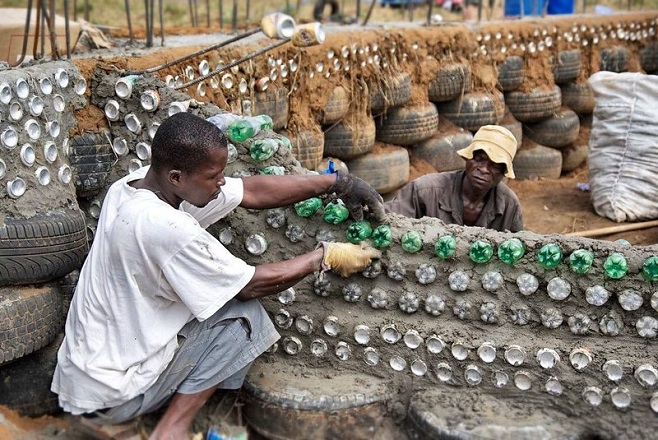Guest blog: Climate change and ecological degradation

Even before the Covid-19 crisis, there was general consensus that the international development system was in a maelstrom of change. At Bond, with the support of the Calouste Gulbenkian Foundation (UK Branch), we have been exploring what this change might look like, with a view to helping international development actors innovate to respond to what is coming and work with local organisations towards better outcomes for the world’s poorest people.
We have identified four transitions where macro trends interact with innovations to drive shifts in the system. These are shared in our infographic report. The first transition is climate change and environmental degradation – an area that the Foundation is rightly focused on. As the pandemic disrupts every aspect of our collective lives, it throws into relief how underprepared and unsustainable our societies are to global emergencies, it also highlights the urgency to take a preventative and proactive approach to the global climate and ecological crisis.
Climate change exacerbates deeply rooted structure social injustices, poverty and inequality – combining to create a triple crisis. Environmental degradation is only intensifying, with over a third of the planet’s land already being severely degraded, alongside rapid deforestation and loss of species. Whilst extreme and erratic have a disproportionate impact on the world’s poorest. Droughts and floods threaten communities’ livelihoods and displace huge amounts of people. Just the impact on agricultural smallholders is and will be immense. 70% of food production in South Asia is dependent on monsoons, and climate change could lead to reductions in crop yield by as much as 10% in the 2020s and a decrease in annual agricultural production in some countries by up to 30% by 2050. This is deeply concerning to Bond members – 80% of CEOs surveyed see increased impacts of climate change and environmental degradation as a major risk to progress.
Although this is not new news, the interconnected nature of these challenges is often underplayed. Such complexity requires a systemic response. If we can work on poverty, nature loss and climate change together we have a chance to shape a just and sustainable future that works for everyone.
For organisations specifically focused on international development there is a need to combine a range of solutions, working with different actors – the very essence of systems change:
- To advocate for policy change that transforms the goals of the system. When we get to COP26, we need to ratchet up global commitments, and financing, so that they are commensurate with the scale of the challenge. Actors from different sectors need to come together to make this happen. As a minimum, that means no investment of aid in fossil fuels. The recovery from Covid-19 gives us an opportunity to rebuild our economic models in a way that protects nature and reduces inequality – using a different measure than GDP could reset our societal goals in a game changing way for example.
- To work with local communities to rethink how development programmes happen. On a recent trip to Ethiopia I saw a CAFOD, Trocaire, SCAIF funded project that combined restoration of a habitat around a watershed upstream, with the construction of irrigation systems downstream to support more productive agriculture. The local community worked together to ensure that everyone benefitted. That is just one example of how projects are being designed to build long term resilience. This project combines livelihoods, nature restoration, climate change and food. This needs to happen at all levels and at scale – taking a supply chain or place based approach. At the same time, humanitarian actors and donors need to be ready to ramp up their response to increased crises.
- To look hard at reducing organisational impact. Systems change happens, in part, by adding up individual actions. International development organisations need to play their part and learn from each other. Covid-19 has highlighted the importance of a locally led response, this can be supported by organisations giving decisions making power and resources to local actors instead of automatically getting back on planes once the pandemic abates.
The pandemic has disrupted us all, but it is likely the start, not the end of change. Responding in a way that shifts the system so that they are more sustainable is something we all need to grasp with both hands. Now is the moment to use existing disruption to push towards the change that is needed to address climate change and environmental degradation. Bond is committed to supporting the sector to do that, with our Development and Environment Group and the Calouste Gulbenkian Foundation. Let us know if you want to get involved.
****
Last year, the Foundation began exploring how to enhance the international reach of our work. As part of this journey, we are learning from the experts who are already working internationally. For this reason, we are supporting Bond with its work on strategy and innovation.
Unsurprisingly, climate comes out as a key trend in Bond’s report. How iNGOs communicate about the issue will be critical if we are to boost public engagement and influence policymakers to take urgent action. We are now looking in detail at what we can do to support climate action. We’ll be sharing more information on this process soon.
